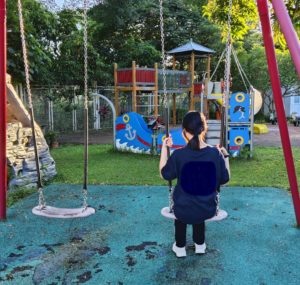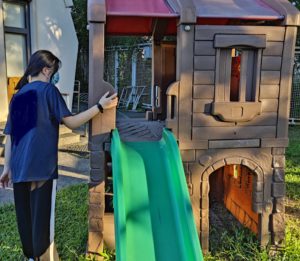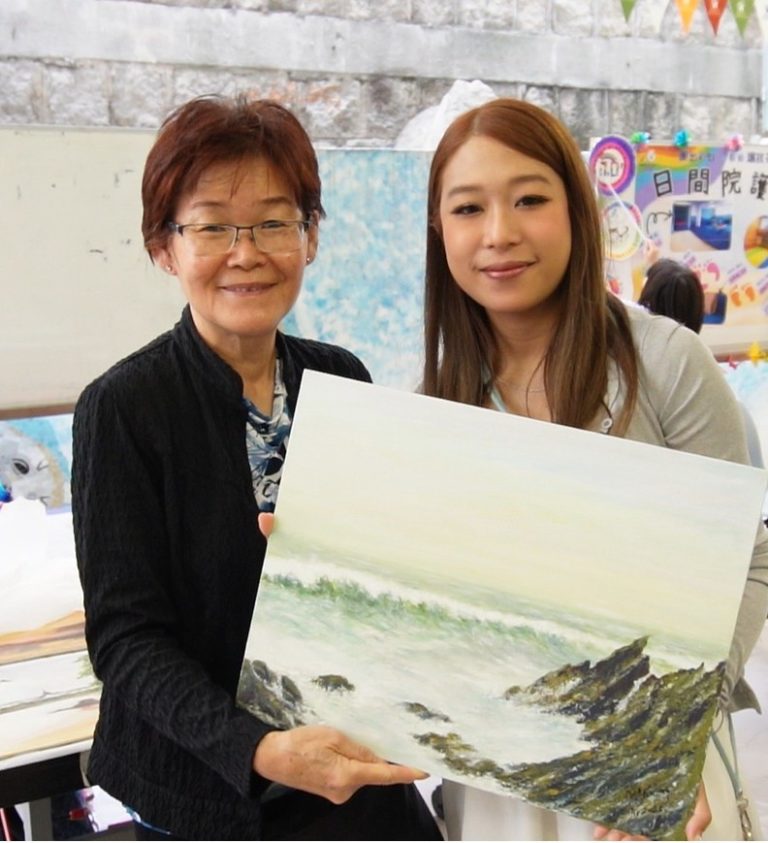Born in mainland China, Lillian’s (alias) parents were divorced before she was born, so she never met her biological father. Her mother had to travel far away for work, making her a “left-behind child” in the hands of her grandmother and aunt. However, neither her mother nor her relatives could tolerate Lillian’s carelessness and small mistakes. They educated her by scolding or beating her.
Injuries Discovered
Her mother later remarried and they moved to HK. Lillian became a cross-boundary student attending a HK school. After a while, her mother divorced again. She stayed with her mother and continued to be beaten and scolded on trivial matters. Although she was attacked many times by her mother since childhood, she remained silent. Until one day, a teacher discovered the injuries under her mask. Upon inquiries, the school decided to call the police and send her to hospital. She was then rescued from domestic violence and moved into a children’s residential home at the age of 14.
During the first two years in the residential home, Lillian took dance classes and remained a member of the school choir. Entering adolescence, she was obsessed with animation and loved role-playing. She would dress up meticulously and put on beautiful costumes. She met other cosplayers at the annual Animation-Comic-Game Hong Kong held at the HKCEC. By playing as a virtual character, it seemed she found some self-values and realized some personal dreams. But in reality, she continued to suffer from nightmares, mood swing and auditory hallucinations, which affected her social life in the residential home.

Timely Help
Lillian’s residential home provides services including Project 3R* supported by the Community Chest of Hong Kong and provides comprehensive care for residential children and youth. She was first introduced to 3R because of her skin problems. She thought she had a strange skin disease which caused redness and swell. 3R dermatologist diagnosed that the disease was inherited. After appropriate treatment, her condition was relieved and she learnt to coexist with it.
In general, home care children can go home temporarily on weekends, but to Lillian, this means a vicious cycle of being abused. At the age of 16, she was referred to 3R psychiatrist for assessment on her mood swings – laughing, crying or losing temper unpredictably. She was diagnosed insomnia and ADHD (predominantly inattention). This may help explain why her relatives reacted badly to Lillian’s repeated small mistakes since childhood. After taking prescribed medication, she felt quite good. Finally, she could concentrate in class and prepare well for the public exams next year.
She was grateful to 3R psychiatrist who carefully adjusted the medication that helped her sleep better, and improved her mind and spirit. For a period of time, she also received CP counseling from her residential home, which helped stabilize her mood. She thinks that low-income family like hers will not be able to afford such medical expenses. She cherishes 3R resources and the timely treatment.
It is a pity that her relative refused counseling and the relative’s mood did not improve. Lillian, on the other hand, grew up in a right environment and received various treatments. Eventually, she realized that she could say “no.” Therefore, she chose to take a break from seeing her potential “abuser” on weekends, which gave her much peace of mind.


Believe in Tomorrow
Having dissected small animals in biology classes, Lillian imagined one day she could assist a surgeon in an operating theatre. She hopes to pursue education in biochemistry or nursing and create a better future of her own.
Children who experienced trauma are grateful for the nourishment of love, like glue repairing fragments. It helps integrate their broken body and mind, regain strength and set sail for their dreams.
*Right Care, Right Time & Right Team (3R) Project https://www.ech.org.hk/en/services/3r-project/














